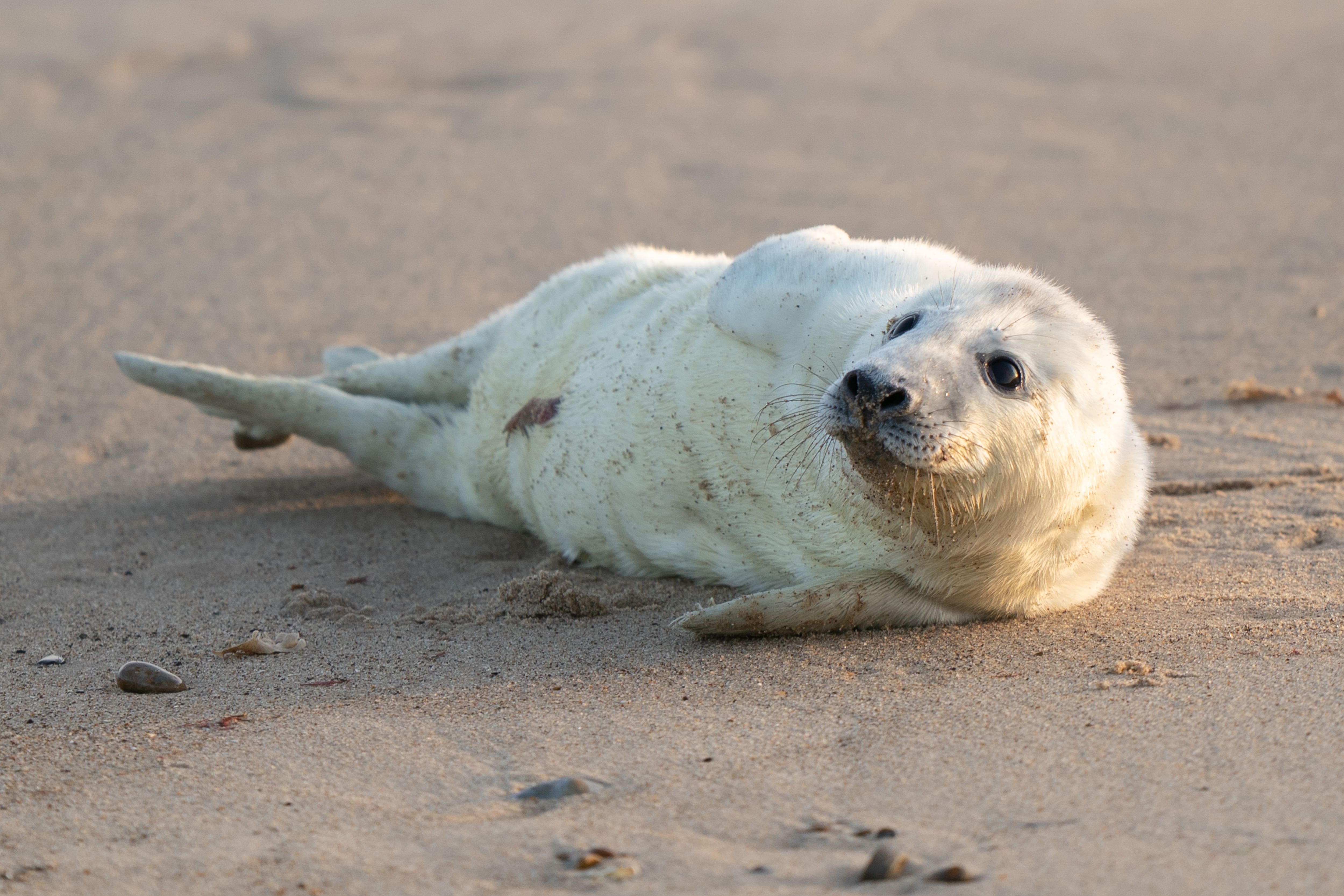First grey seal pup of the season born at Horsey Beach in Norfolk
An estimated 2,500 pups were born in the last breeding season at the site, up from fewer than 100 births around 20 years ago.

The first grey seal pup of the season has been born at Horsey Beach in Norfolk, with the sands roped off to protect mothers and their young from disturbance.
An estimated 2,500 pups were born in the last breeding season at the site, up from fewer than 100 births around 20 years ago.
The stretch of beach, 12 miles north of Great Yarmouth, has volunteer wardens from the Friends of Horsey Seals group in place to help answer questions about the animals.
They have put up signs and there are roped paths in place to guide people to dedicated viewing areas.
In a post online, Friends of Horsey Seals urged people to “view the seals safely”.
“Horsey beach is under a voluntary closure to protect the pregnant seals to give birth in peace,” the group said.
“It is against the law to disturb a mammal during their breeding season so this means the seals at Horsey and Winterton.”
The count in January this year was called off due to high tides which forced the seals on top of the dunes at Horsey Gap making it too dangerous for volunteers to carry out their usual count, and an estimate was made instead.
The arrival of the first grey seal pup of the season at Horsey follows soon after the arrival of the first grey seal pup of the season at England’s largest grey seal colony at Blakeney Point in North Norfolk.
The very first seal pup to be born at Blakeney was 34 years ago in 1988, according to the National Trust, and rangers are anticipating around 4,500 new arrivals there this season.
Bookmark popover
Removed from bookmarks